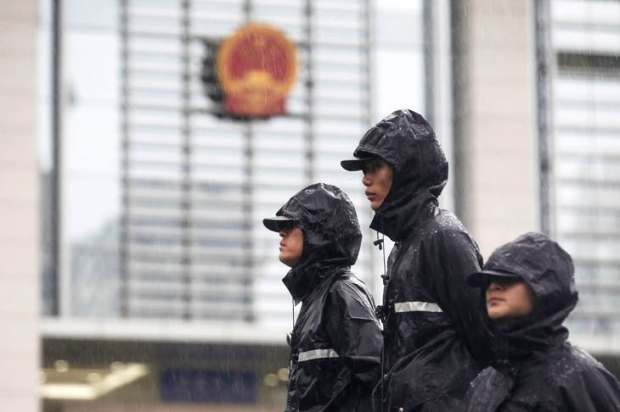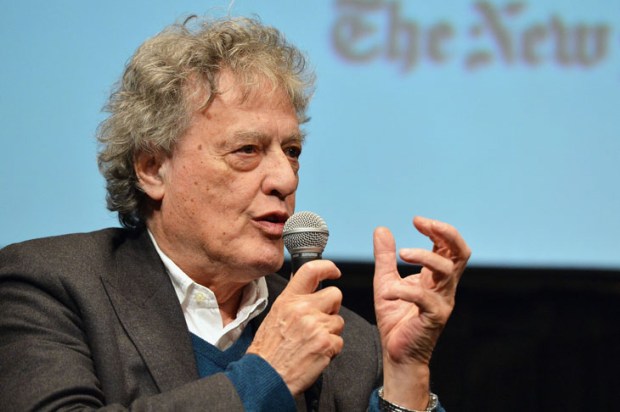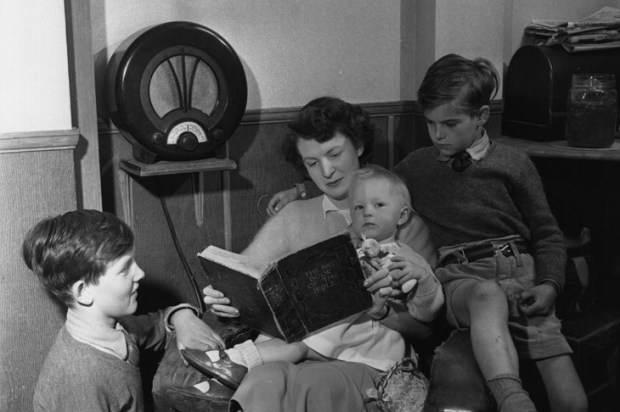All this week Radio Five Live has been giving us an insight into what it is like not just to confront death every day but also to know that a minor error on your part might end a person’s life. In Junior Doctors’ Diaries on Sunday night, Habiba, Andrew and Jeremy took us inside their daily round, followed by updates throughout the week on Phil Williams’s night-time show. It’s been a timely reminder (politically motivated or not) of how much we need good doctors, and how sad it is that so many of them have felt driven to go on strike. Sad because it’s actually a reflection of how undervalued they have become, and of how little we understand about what they do. Indeed, Habiba, a paediatrics specialist, told us she had been upset by some parents who, ‘rightly frustrated’ that their child was not improving as quickly as they had hoped, had questioned her experience. ‘It’s hard,’ she said, bleakly, before reassuring us that she loves her job and would do nothing else.
Andrew, meanwhile, was driving home at 9.07 a.m. after a weekend on call at a hospital in Suffolk. The hospital was absolutely full, he told us, just one or two empty beds, and some of his colleagues were making ‘awful and morbid comments about how people passing away frees up a bed’. He added, despairingly, ‘That’s the point we’ve got to.’
In Gwent Jeremy recorded his thoughts at two in the morning after spending two hours in theatre operating on a woman who was suffering from a hernia that was stuck. He was thirsty and tired, but there was now a new urgent patient waiting for him in A&E, who needed to go straight into theatre with a twisted testicle. ‘I need to have a quick drink,’ he told us, ‘and then get back on it.’ Quite apart from his workload, Jeremy also has to make, on an almost daily basis, decisions on whether to operate or not. One patient came in with infected pressure sores that were so bad she had become overwhelmed with infection. Surgery to remove all the dead tissue could make her better, he said, but she was very unlikely to survive. ‘Just because we can do surgery doesn’t make it the right thing to do.’
Andrew, too, also talked about difficult decisions. He wanted to change the resuscitation status of an old lady who had been found on her own at home suffering from hypothermia and who had no family or friends. Her next-of-kin was a neighbour who hadn’t spoken to her in two years. He didn’t want her to experience CPR if her heart stopped because there was little chance she would survive the trauma. ‘Three taps on the chest won’t bring people back,’ he said. ‘This isn’t Holby City.’
Will they, won’t they, get back together again? Debbie Tucker Green makes no promises at the end of her new play lament on Radio 4. A man and a woman are in a fancy restaurant, meeting up for the first time in years. It’s not a comfortable reunion. They speak across each other, interrupt each other, repeat what the other has said without taking in the meaning. But gradually their separate stories since they parted begin to unravel. How they appear might not be who they now are.
Tucker Green (who also directed her play, which was produced by Mary Peate) has said that when she begins a new project she doesn’t know whether she’s writing a poem or a play. She has a voice in her head that demands to be written down and it’s the words that count, not the format. As you listen you can see exactly what she means. She writes with such brilliant rhythm and economy that it could be poetry. She doesn’t explain but tells us all we need to know simply from the way her words are put together. The acting, too, was pause-perfect with Paterson Joseph as the man, Nadine Marshall as the woman and Cecilia Noble as a very noble but difficult mother.
How we use words, or give licence to others to use them, has become of vital importance, argues Timothy Garton Ash in his new Radio 4 lunchtime series, Free Speech (produced by Nina Robinson). ‘It’s the oxygen of freedom,’ he insists in the first programme. But he’s concerned that it’s being put under pressure by mass migration and the internet. The information giants such as Google and Facebook are crafting the rules for free speech without any recourse to courts or governments. We need, says Garton Ash, to establish a set of basic principles to combat the assassin’s veto (I will kill you if you say this), the heckler’s veto (we will stop you saying what we don’t like by shouting louder than you) and the offensiveness veto (I’m offended so you’re not allowed to say this). ‘We must fight for them,’ says Garton Ash, a new cogent voice on 4, with a vast hinterland of knowledge and understanding that he uses not to impress or confuse but to make sense of complex and crucial issues.
Got something to add? Join the discussion and comment below.
Get 10 issues for just $10
Subscribe to The Spectator Australia today for the next 10 magazine issues, plus full online access, for just $10.














Comments
Don't miss out
Join the conversation with other Spectator Australia readers. Subscribe to leave a comment.
SUBSCRIBEAlready a subscriber? Log in